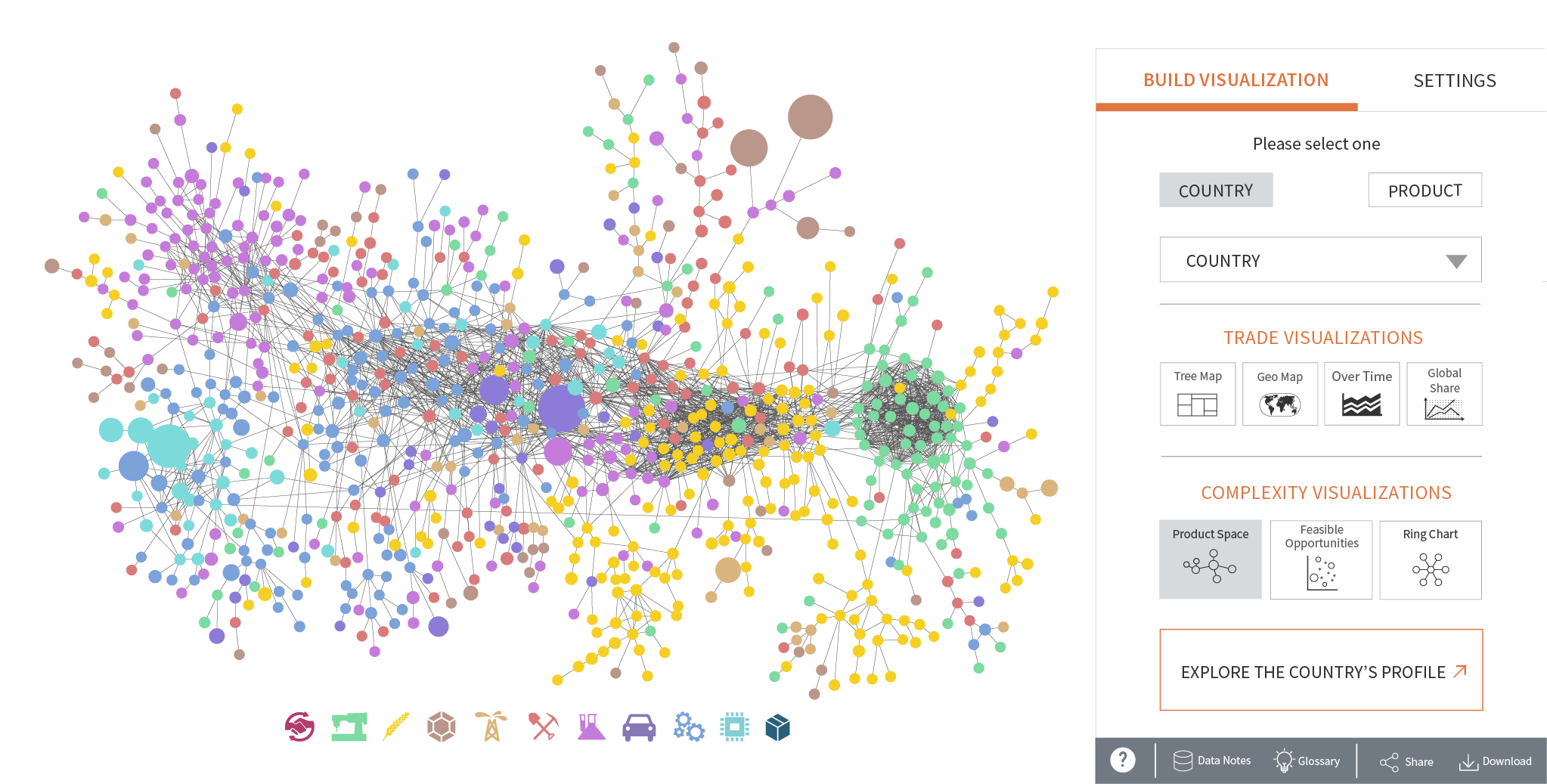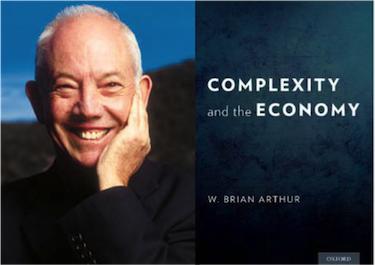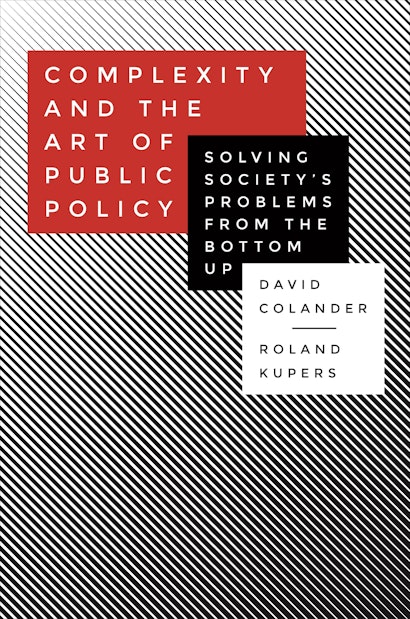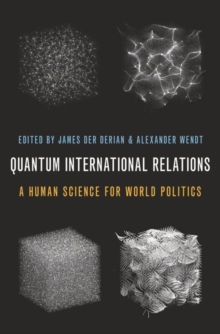
Arjun K. Dinesh
- Library Trainee
- Arjun.K@jgu.edu.in
- 130

Naresh Singh
- Professor
- naresh@jgu.edu.in
- 130

Cheshta Grover
- Researcher
- cgrover1@jgu.edu.in
- 130

Sudip Patra
- Professor
- spatra@jgu.edu.in
- 130
Our attempt was primarily motivated by the urgency felt by our students for a comprehensive curated resource for complexity economics .. It is quite palpable that advanced postgraduate students, or doctoral students, struggle to find with ease seminal works of such a versatile field of knowledge. Hence this compilation is aimed to be a good friend in need for students embarking upon research or self-study.
This compilation of some key resources in complexity economics is a reader for both students and faculty engaged in a postgraduate course in complexity economics or planning such a course. After developing and teaching such a course at Jindal School of Government and Public Policy (JSGP) we recognised the need to bring together in one place suitable pedagogic materials from a variety of sources to support the teaching and growth of this young but important economics discipline. Complexity economics sees the economy as a complex adaptive system with all the associated characteristics like dynamic non-linearities, feed back loops, far from equilibria states and heterogeneous agents making rational and non-rational decisions driven by both self-interest and other motivations. Some of its tools are computational in nature, such as a range Agent Based Models, Network Analysis etc, but some are more qualitative in nature with a focus on sense making , heuristics, complex thinking, etc.
Complex adaptive system’s approach in economic science and public policy has evolved in different paths over the last few decades. There have been different perspectives developed towards understanding the economy as a complex adaptive system. Computational approaches, sense-making framework, evolutionary biology based concepts, to name some seminal frameworks, have evolved in parallel. The CEASP (Centre for complexity economics, applied spirituality and public policy) at JSGP, OP Jindal Global University, has compiled this volume of seminal works in the multitude of approaches, which as a whole provides an on-to-date but still emerging field of complex social sciences, where complexity economics plays a central role.
Complex adaptive system’s approach in economic science and public policy has evolved in different paths over the last few decades. There have been different perspectives developed towards understanding the economy as a complex adaptive system. Computational approaches, sense-making framework, evolutionary biology based concepts, to name some seminal frameworks, have evolved in parallel. The CEASP (Centre for complexity economics, applied spirituality and public policy) at JSGP, OP Jindal Global University, has compiled this volume of seminal works in the multitude of approaches, which as a whole provides an on-to-date but still emerging field of complex social sciences, where complexity economics plays a central role.

Arjun K. Dinesh
- Library Trainee
- Arjun.K@jgu.edu.in
- 130

Naresh Singh
- Professor
- naresh@jgu.edu.in
- 130

Cheshta Grover
- Researcher
- cgrover1@jgu.edu.in
- 130

Sudip Patra
- Professor
- spatra@jgu.edu.in
- 130
First section deals with foundational questions and frameworks, here we compile the seminal works since late 1980s which have formally organised complexity economics questions. Central concepts like economy as far from equilibrium system, economy as ecology of forecast models, agents being heterogeneous, non-linear relations between dynamic variables, computational modelling and its differences from DSGE paradigm, are focus of these works. Students can see the historical development of complexity economics. We also include more recent foundational contributions from evolutionary economics stand point, which is an interface between evolutionary biology, or psychology and complex social system understanding.
Brian Arthur, 2021, Economics in Nouns and Verbs, arXiv:2104.01868 [Download]
Brian Arthur, 2021, Foundations of complexity economics, Nature Review of Physics,[Download]
Koppl, Roger et. al., 2014, Economics for a creative world, Journal of Institutional Economics [Download]
Felin, Teppo et. al, 2014, Economic Opportunity and Evolution: Beyond Landscapes and Bounded Rationality, Strategic Entrepreneurship Journal, [Download]
Mealy, Penny et al, 2019, Interpreting economic complexity, Science Advances [Download]
Farmer, J., Foley, D. 2009 The economy needs agent-based modelling. Nature 460, 685–686 [Download]
Felin, Teppo and Kauffman, Stuart, 2019, The Search Function and Evolutionary Novelty, IN: New Developments in Evolutionary Innovation: Novelty Creation in a Serendipitous Economy, Available at SSRN [Download]
Gatti, Roberto Cazzolla et. al., 2020, On the emergence of ecological and economic niches, Journal of Bioeconomics, [Download]

Over 6.4 billion people participate in a $36.5 trillion global economy, designed and overseen by no one. How did this marvel of self-organized complexity evolve? How is wealth created within this system? And how can wealth be increased for the benefit of individuals, businesses, and society? In The Origin of Wealth, Eric D. Beinhocker argues that modern science provides a radical perspective on these age-old questions, with far-reaching implications.

Arjun K. Dinesh
- Library Trainee
- Arjun.K@jgu.edu.in
- 130

Naresh Singh
- Professor
- naresh@jgu.edu.in
- 130

Cheshta Grover
- Researcher
- cgrover1@jgu.edu.in
- 130

Sudip Patra
- Professor
- spatra@jgu.edu.in
- 130
The second section onwards we explore more particular themes, which have evolved as central pillars of complexity economics. Emergence we begin with. Emergence has become a buzz word in both natural and social sciences. In natural science emergence is very much motivated by the seminal thermodynamics literature, where the very concept of entropy and second law of increase of entropy for isolated systems, is by definition emergence concepts, though epistemic in nature. Emergence in complexity economics also has been motivated by such literatures, but generated its own particular strand. Institutional economics can also be well included, since emergence of institutions is inherently a complex phenomenon, with its different histories across countries. Hence in this section we have compiled important works which provide a coherent introductory picture of emergence literature, which we should say is still emerging.
Harper, David A. and Lewis, Paul Andrew, 2012 New Perspectives on Emergence in Economics. Journal of Economic Behavior and Organization, 82 (2-3): 329-37, 2012, Available at SSRN [Download]
Wolfram Elsner, 2010. "The process and a simple logic of ‘meso’. Emergence and the co-evolution of institutions and group size," Journal of Evolutionary Economics, Springer, vol. 20(3), pages 445-477, June. [Contact Library for a copy of the paper]
Cordes, C., Elsner, W., Graebner, C. et al. The collapse of cooperation: the endogeneity of institutional break-up and its asymmetry with emergence. Journal of Evolutionary Economics 31, 1291–1315 [Download]
Wolfram Elsner (2021) Collapse. Institutional Decline and Breakdown, Its Endogeneity and Its Asymmetry Vis-á-Vis Emergence: A Theoretical Frame, Journal of Economic Issues, 55:1, 79-102 [Download]

Hausmann, R., et al., 2013. The Atlas of Economic Complexity: Mapping Paths to Prosperity 2nd ed., Cambridge: MIT Press. [Download]
Why do some countries grow and others do not? The authors of The Atlas of Economic Complexity offer readers an explanation based on "Economic Complexity," a measure of a society’s productive knowledge. Prosperous societies are those that have the knowledge to make a larger variety of more complex products. The Atlas of Economic Complexity attempts to measure the amount of productive knowledge countries hold and how they can move to accumulate more of it by making more complex products. [Internet Archive]

Arjun K. Dinesh
- Library Trainee
- Arjun.K@jgu.edu.in
- 130

Naresh Singh
- Professor
- naresh@jgu.edu.in
- 130

Cheshta Grover
- Researcher
- cgrover1@jgu.edu.in
- 130

Sudip Patra
- Professor
- spatra@jgu.edu.in
- 130
Macroeconomics has traditionally been source of many intriguing problems in the history of economic thought, for example problems related to aggregation or fallacy of composition, which provided vital inputs to emergence literature. Similarly multiple equilibria in theoretical neoclassical models have remained a thorny issue, not only for economists but also for policy architects. Multiple equilibria presents a puzzle since theoretical modelling itself cannot provide any insight on which equilibrium solution would be chosen eventually, collectively by agents. Hence welfare economics traditionally have posed many normative principles in such scenarios, making Pareto optimality a necessary but never a sufficient criterion for economy as a whole. In the third section then we make a brief de-tour of important recent works on multiple equilibria problems in Macroeconomics. This section equips students with deeper understanding of problems in standard macro theory, which would provide further insights into why we need to embrace complexity economics view of non-equilibrium dynamics.
Stephen Morris, and Hyun Song Shin, 2000, Rethinking Multiple Equilibria in Macroeconomic Modeling, NBER Macroeconomics Journal [Download]
Morris, Stephen Edward and Shin, Hyun Song, Global Games: Theory and Applications, 2001 Cowles Foundation Discussion Paper No. 1275R, [Download]
Angeletos, George-Marios, and Iván Werning. 2006. "Crises and Prices: Information Aggregation, Multiplicity, and Volatility." American Economic Review, 96 (5): 1720-1736. [Download]
David Vines, Samuel Wills, The rebuilding macroeconomic theory project part II: multiple equilibria, toy models, and policy models in a new macroeconomic paradigm, Oxford Review of Economic Policy, Volume 36, Issue 3, Autumn 2020, Pages 427–497, [Download]

Arjun K. Dinesh
- Library Trainee
- Arjun.K@jgu.edu.in
- 130

Naresh Singh
- Professor
- naresh@jgu.edu.in
- 130

Cheshta Grover
- Researcher
- cgrover1@jgu.edu.in
- 130

Sudip Patra
- Professor
- spatra@jgu.edu.in
- 130
Currently complexity economics is motivated by computational frameworks, which we have explored in the earlier sections. However, we observe here that agent based modelling though very fruitful as a theoretical foundation, might not always be practicable when urgent policy interventions are required. Also that students, particularly from different backgrounds than mathematically oriented, might find computational models not in their forte. Fortunately, we have seen that complexity frameworks with practical policy insights can be built in alternative ways too. One major work in this direction has been sense-making framework, which provides a thorough qualitative template to distinguish between simple, complex, complicated and chaotic systems. This categorization is vital since in many research and policy programs, it remains unclear which type of system we are dealing with, complex does not by default mean complicated! Hence this section provides an introductory coverage of sense-making framework with its applications in different domains including management science.
Eric K. Van Beurden, Annie M. Kia, Avigdor Zask, Uta Dietrich, Lauren Rose, Making sense in a complex landscape: how the Cynefin Framework from Complex Adaptive Systems Theory can inform health promotion practice, Health Promotion International, Volume 28, Issue 1, March 2013, Pages 73–83, [Download]
Holly, M, Bartels, S, Lewis, N, Howard, P, Ramaswamy, R. A learning approach to community response during the COVID-19 pandemic: Applying the Cynefin framework to guide decision-making. Learn Health Sys. 2022; 6( 2):e10295. {Download]
Shalbafan, S et al. 2017. Decision-making in project portfolio management: using the Cynefin framework to understand the impact of complexity. In: International Research Network on Organizing by Projects, (ed.), International Research Network on Organizing by Projects (IRNOP) 2017. Sydney: University of Technology Sydney ePress.[Download]
Bell, C., Masys, A.J. (2020). Climate Change, Extreme Weather Events and Global Health Security a Lens into Vulnerabilities. In: Masys, A., Izurieta, R., Reina Ortiz, M. (eds) Global Health Security. Advanced Sciences and Technologies for Security Applications. Springer, Cham. [Contact Library for full-text]
C. F. Kurtz and D. J. Snowden, "The new dynamics of strategy: Sense-making in a complex and complicated world," in IBM Systems Journal, vol. 42, no. 3, pp. 462-483, 2003, [Contact library for full-text ].
Van der Merwe SE, Biggs R, Preiser R, Cunningham C, Snowden DJ, O’Brien K, Jenal M, Vosloo M, Blignaut S, Goh Z. Making Sense of Complexity: Using SenseMaker as a Research Tool. Systems. 2019; 7(2):25. [Download]

The Cynefin framework helps leaders determine the prevailing operative context so that they can make appropriate choices. Each domain requires different actions. Simple and complicated contexts assume an ordered universe, where cause-and-effect relationships are perceptible, and right answers can be determined based on the facts. Complex and chaotic contexts are unordered—there is no immediately apparent relationship between cause and effect, and the way forward is determined based on emerging patterns. (Read full paper)

Arjun K. Dinesh
- Library Trainee
- Arjun.K@jgu.edu.in
- 130

Naresh Singh
- Professor
- naresh@jgu.edu.in
- 130

Cheshta Grover
- Researcher
- cgrover1@jgu.edu.in
- 130

Sudip Patra
- Professor
- spatra@jgu.edu.in
- 130
Cognitive capture is a well-known in policy literature, where policy makers are biased by the long term training they undergo (may be in graduate schools) in a particular school of modelling, which is in most case general equilibrium or DSGE. Hence for policy students, for example as in our University, it is critical that policy implications of complexity economics is being explored. This section explores current papers in that direction. Albeit, policy implications of complexity economics is still an unfolding domain, some seminal texts are already written which we refer to.
Durlauf SN. Complexity, economics, and public policy. Politics, Philosophy & Economics. 2012;11(1):45-75. [Contact library for Full-text]
Wolfram Elsner, 2017, Complexity Economics as Heterodoxy: Theory and Policy, Journal of Economic Issues [Contact library for Full-text]
Kirman, Alan. 2016. "Complexity and Economic Policy: A Paradigm Shift or a Change in Perspective? A Review Essay on David Colander and Roland Kupers's Complexity and the Art of Public Policy." Journal of Economic Literature, 54 (2): 534-72. [Contact library for Full-text]
Brian W. Head, 2019, Forty years of wicked problems literature: forging closer links to policy studies, Policy and Society [Download]

Arjun K. Dinesh
- Library Trainee
- Arjun.K@jgu.edu.in
- 130

Naresh Singh
- Professor
- naresh@jgu.edu.in
- 130

Cheshta Grover
- Researcher
- cgrover1@jgu.edu.in
- 130

Sudip Patra
- Professor
- spatra@jgu.edu.in
- 130
We conclude our compendium by arranging some very recent frontiers works, which potentially might enrich the complex adaptive systems view. Inputs from evolutionary biology is again emphasized. Another parallel development has been quantum-like modelling framework, which is an interface between mathematical and conceptual tools in quantum science and human cognition. Copious empirical literature show that decision making under contexts of uncertainty (conceptually different from hedge-able risk) does not follow standard Boolean logical set up, hence can be better described by quantum-like logic with its own mathematical apparatus. Quantum-like modelling can contribute significantly to complexity thinking, since both heterogeneity of agents and behaviour of such agents in uncertain contexts are fundamental to complexity modelling, particularly economics modelling. Other cutting edge ideas like ontological emergence in economy is also covered briefly in this section. Such ideas would motivate students to move on the wonderful paths of self-study and further research.
Popovici, R., A. G. de L. Moraes, Z. Ma, L. Zanotti, K. A. Cherkauer, A. E. Erwin, K. E. Mazer, E. F. Bocardo Delgado, J. P. Pinto Cáceres, P. Ranjan, and L. S. Prokopy. 2021. How do Indigenous and local knowledge systems respond to climate change? Ecology and Society 26(3):27. [Download]
Veronica, R et.al., 2017, The ontology of complexity and the neo-Schumpeterian evolutionary theory of economic change, Journal of Evolutionary Economics [Download]


